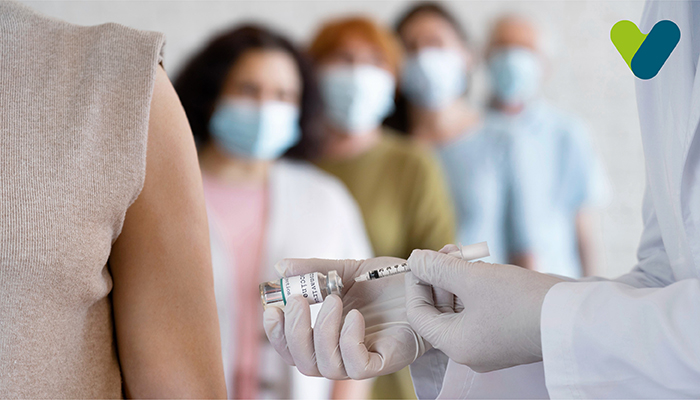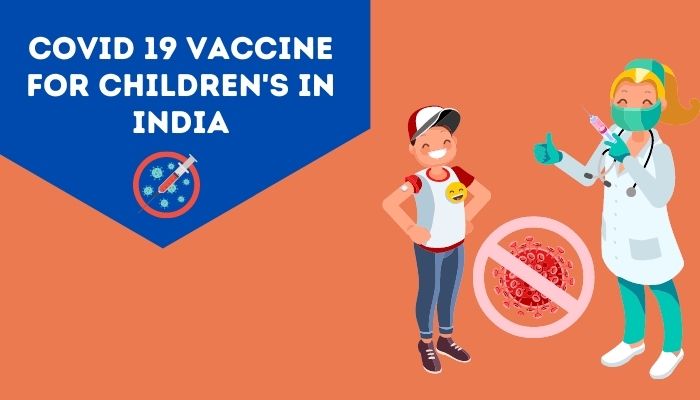There exists a globally imminent paranoia surrounding the COVID19 situation. Ever since WHO (world health organization) scientists suspect the possibility of COVID19 becoming endemic, authorities have been trying to get more people accustomed to the ‘new normal’. This involves extra precaution in terms of personal health, hygiene, implementation of protocols for social gatherings, and intense vaccination drives.
The fact that the coronavirus disrupted entire communities for more than a year has left a major population overestimating its impact. At the same time, another portion of the population undersells the deadly effects of COVID19. The truth is that COVID19 is a deadly airborne disease that has an estimated average death rate of 1%. This means that 1% of the infected people are at risk of demise. But it also means that 99% of the infected people have a chance of surviving through the virus. With the help of the right medical support, most of the infected patients can be revived. Government authorities are implementing thorough vaccination campaigns to support the community’s quick recovery into the ‘new normal.’
Importance of Consuming COVID 19 Vaccine
Like most viral diseases, COVID19 has no specific guaranteed cure, and like most viral diseases, the best way to secure one’s health from COVID19 is to get vaccinated. A few controversies about the effects of the COVID19 vaccine have been debunked by world-class professional doctors from multiple countries. There is no eminent proof of the ill effects of the COVID19 vaccine. Periodical booster doses, on the doctor’s suggestion, can be taken to revamp the vaccine’s defense against the actual virus. The most popular COVID19 vaccines that have been approved by the WHO are as follows. The availability of these COVID19 vaccines varies from country to country.- Moderna / Mrna-1273
- Pfizer / bioNtech / BNT162b2
- Janssen / Ad26.COV.2S
- Oxford / Astrazeneca / AZD1222
- Serum institute of India / Covishield / oxford-astrazeneca formulation
- Bharat biotech / Covaxin
- Sinofram Beijing / BBIBP-CorV
- Sinovac / Coronavac
Smallpox in humans and Rinderpest in ruminants are two examples of diseases that have been globally eradicated through effective vaccination. In 1980, the WHO declared that smallpox had been eradicated completely through the administered vaccines that developed early immunity in every individual. Other ongoing success stories of vaccination programs are for diseases like malaria, polio, yaws, and dracunculiasis. Upon extensive vaccination programs, these diseases are approaching elimination in the next few decades. The vaccination programs have already reduced the number of reports on these cases. The WHO has developed and approved vaccines for more than 20 deadly diseases. Statistically, these vaccination programs help in avoiding 2 to 3 million annual deaths. The same phenomena is applied to COVID19 vaccination.
Does the COVID 19 Vaccine Guarantee No Further Infection?
The COVID19 vaccines work like any other vaccine, where there is no 100% guarantee for zero infection. However, as studies suggest, the COVID19 vaccine is efficient and lifesaving. The chances of survival and recovery are much higher in people who have taken the vaccine when compared to people who have not taken the vaccine. The aim of the current COVID19 vaccine is to prevent the infected people from reaching extreme severities such as hospitalization, severe disease, or death.However, the COVID19 vaccine does not offer a 100% guarantee against getting infected by the coronavirus. It is only proven to reduce the risks factors and intensity of the infection. Hence, even after the COVID19 vaccination, it is advised to stay cautious and maintain hygienic practices along with social distancing.
Possibility of Getting Infected With COVID 19 Twice
There have been multiple reports of people getting infected by COVID19 for the second time. Considering viral infections such as the COVID19, the body does tend to develop a certain degree of immunity against it once they are exposed to the virus, or in other words, get infected. But there are possibilities that an individual can retract the virus for the second time if their immune system fails to immediately get rid of it.For people who have recovered from COVID19, reinfection is very much possible. Reinfection during the first 3 months from the initial infection is less likely to happen. The antibodies produced as a reaction to the virus tend to remain in the bloodstream even after the virus is expelled. But if the former patient is exposed to the coronavirus again and if the antibodies in their system have reduced to a count that is not able to tackle the virus’ re-entry, a second infection is possible. Hence, getting affected by COVID19 after getting vaccinated and even if the person has already been infected previously is a possibility that cannot be ruled out.
Possibility of Spreading COVID19 After Vaccination
The COVID19 is only proven for issuing a safety net in case of infection. It helps reduce the chances of infection, reduces the intensity of the symptoms, prevents hospitalization, gives a better chance at quicker recovery, and most times can lead to recovery with zero to very few symptoms. But when an individual has the coronavirus in their system, they are prone to being hosts of transmission. This means that any person, vaccinated and not vaccinated, who have encountered and had the virus enter their system, will spread it. The COVID19 vaccine does not provide assurance that the virus will not be transmitted. However, the research and observations are still under study. Some researchers noticed a lesser chance of transmission from people who are asymptomatic and have been vaccinated as the virus count in their body is probably lesser. But people who have taken the vaccine and show minor symptoms of COVID19 after retracting the virus are more prone to spreading.There are two types of immunity that vaccines can help achieve – effective and sterilizing. Effective immunity prevents the pathogen from causing severe harm to the victim. The sterilizing immunity eradicates the virus entirely and even prevent asymptomatic cases. The amount of research to back up any claims in this area is scarce. COVID19 vaccines are do not have a sterilizing effect for sure, so it is assumed that they have provided effective immunity. But from the observations made so far, the COVID19 vaccines do allow transmission.


